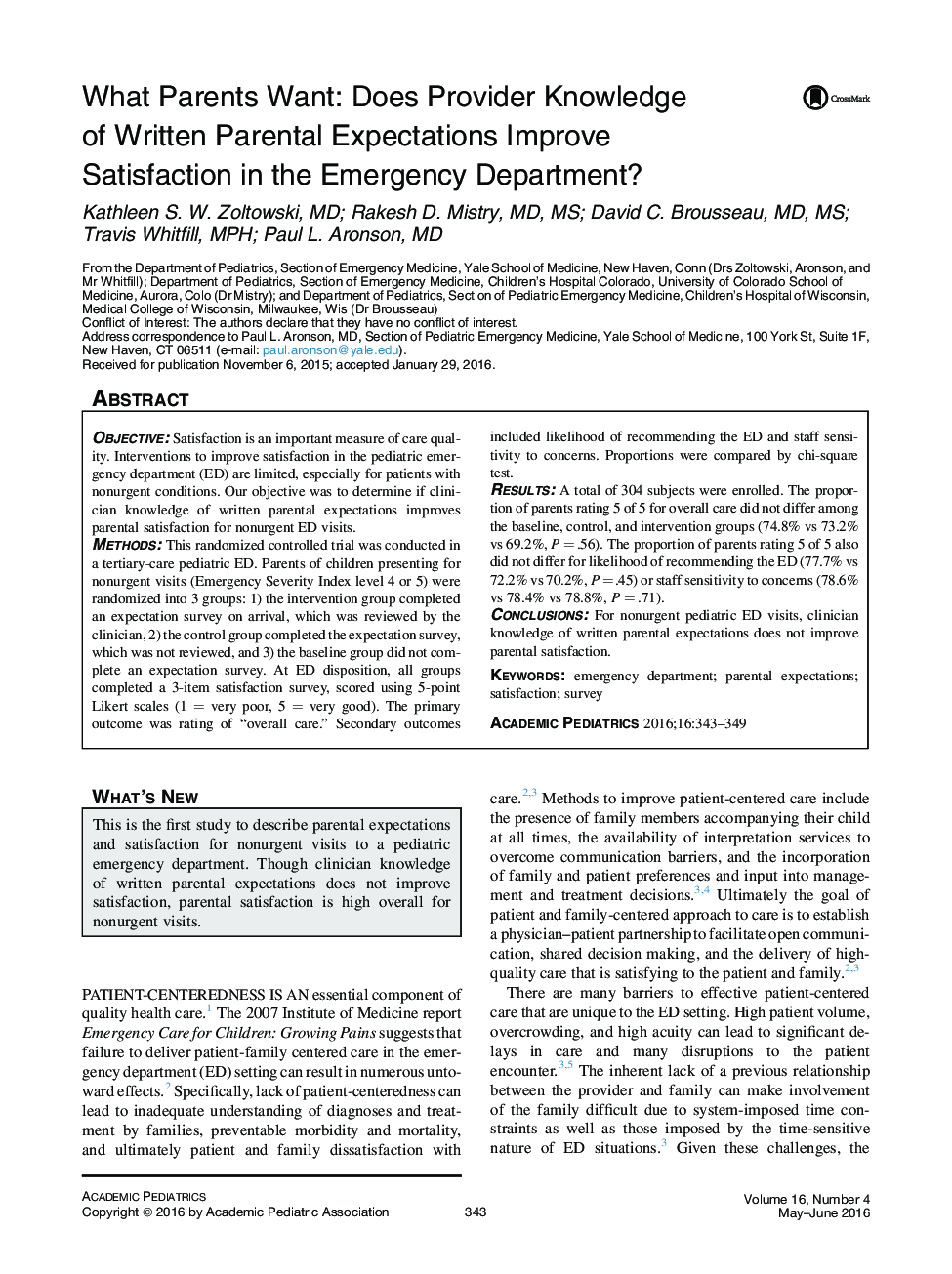| Article ID | Journal | Published Year | Pages | File Type |
|---|---|---|---|---|
| 4139176 | Academic Pediatrics | 2016 | 7 Pages |
ObjectiveSatisfaction is an important measure of care quality. Interventions to improve satisfaction in the pediatric emergency department (ED) are limited, especially for patients with nonurgent conditions. Our objective was to determine if clinician knowledge of written parental expectations improves parental satisfaction for nonurgent ED visits.MethodsThis randomized controlled trial was conducted in a tertiary-care pediatric ED. Parents of children presenting for nonurgent visits (Emergency Severity Index level 4 or 5) were randomized into 3 groups: 1) the intervention group completed an expectation survey on arrival, which was reviewed by the clinician, 2) the control group completed the expectation survey, which was not reviewed, and 3) the baseline group did not complete an expectation survey. At ED disposition, all groups completed a 3-item satisfaction survey, scored using 5-point Likert scales (1 = very poor, 5 = very good). The primary outcome was rating of “overall care.” Secondary outcomes included likelihood of recommending the ED and staff sensitivity to concerns. Proportions were compared by chi-square test.ResultsA total of 304 subjects were enrolled. The proportion of parents rating 5 of 5 for overall care did not differ among the baseline, control, and intervention groups (74.8% vs 73.2% vs 69.2%, P = .56). The proportion of parents rating 5 of 5 also did not differ for likelihood of recommending the ED (77.7% vs 72.2% vs 70.2%, P = .45) or staff sensitivity to concerns (78.6% vs 78.4% vs 78.8%, P = .71).ConclusionsFor nonurgent pediatric ED visits, clinician knowledge of written parental expectations does not improve parental satisfaction.
